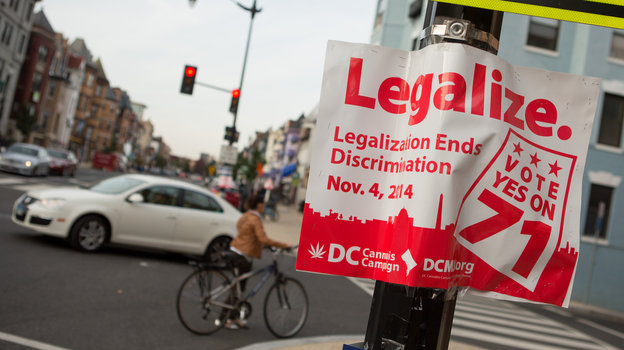Recreational Marijuana Legalized In Two U.S States, and Washington, D.C.
November 20, 2014
The use of marijuana is illegal according to the United States federal code – classified as a Schedule 1 substance, similarly to much harder drugs such as heroin and cocaine. However, as social norms change and cannabis use has become more acceptable to mainstream society, many states (including New York) have successfully pushed for the drug to be allowed for medicinal usage over the past several years. Various states have also decriminalized the drug, charging minor cases of possession solely with a ticket.
In the past few years, some states have even been attempting to legalize marijuana for recreational use. Oregon and Washington completely legalized the drug in 2012, and prior to this year’s midterm elections, citizens gathered together in Alaska, Oregon, and Washington D.C to get politicians to legalize marijuana in their states, hopefully joining Colorado and Washington state in their complete approval of the drug.
During this year’s midterm elections, citizens turned out in large numbers to vote on the legalization of marijuana. All three measures were passed, with the Colorado and D.C. measures passed fairly easily; in Alaska, the pro-marijuana vote squeezed out a narrow victory, defying prior expectations of a failure based on polls. Although this may be the case recreational cannabis use may not be allowed for several months in these states (and D.C. still has to set up a system to sell the drug); even then, consumption the plant won’t be permitted in public areas.
Politicians realized that their scare tactics to prevent their citizens from using marijuana were useless; people were going to consume the drug whether it was legal or not, and voters began to realize that the current system provided profits to drug cartels rather than American business owners. While the drug is now legal in four states and D.C., federal charges and prison time could still be applied to any citizen caught even possessing small amounts of the drug in much of the country, especially socially conservative Southern states. Despite the legal troubles attached to the drug, many users throughout the country see these movements as a positive sign, hoping that their state will be the next place they can obtain a legal high.



